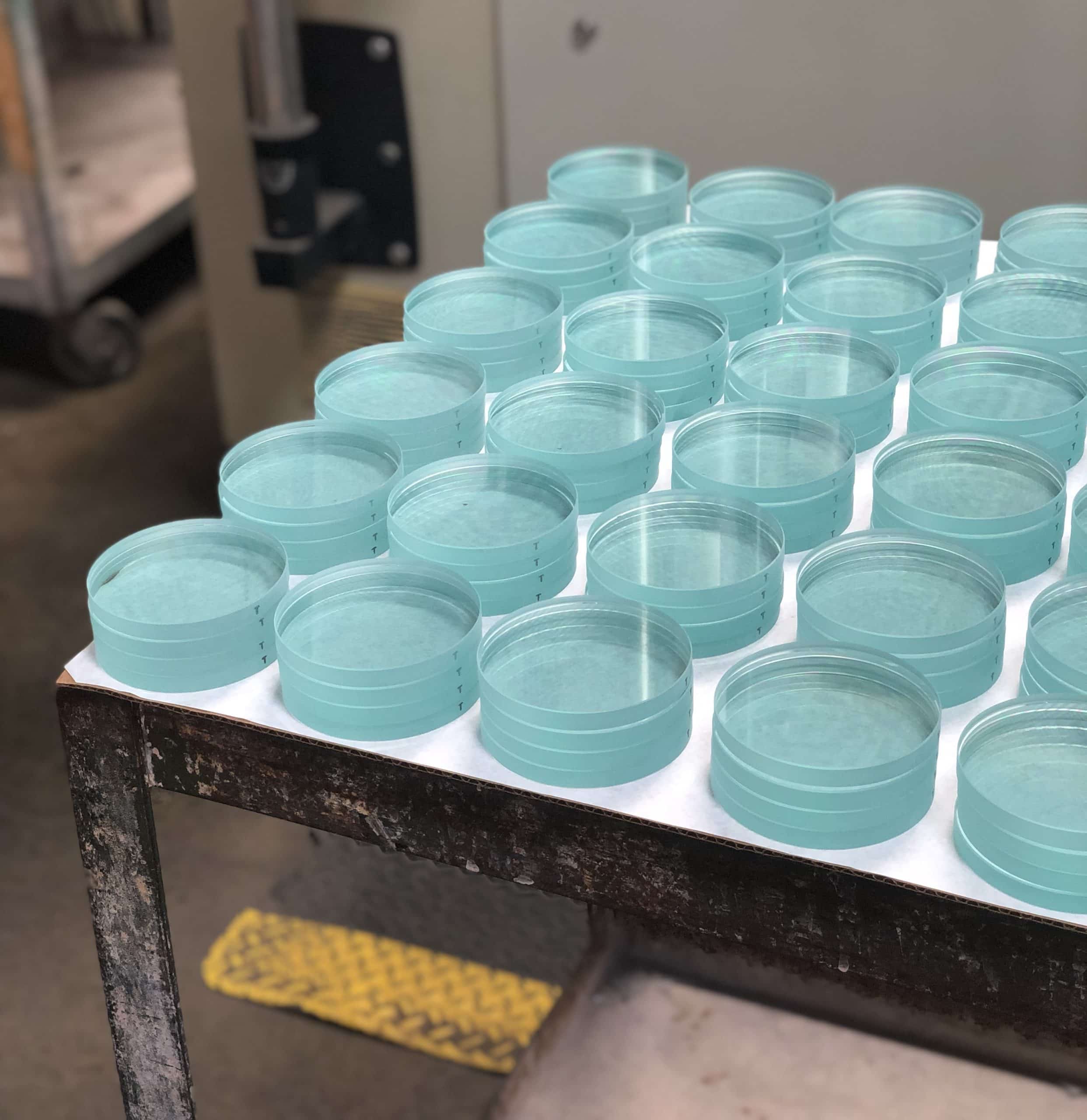What is Optical Glass?
Leave a CommentThe optical industry encompasses a wide range of applications that relate to the properties and motion of light. From lenses for eyeglasses and cameras to fiber optics, optical solutions are a constant part of daily life. Optical glass is a fundamental material used in many optical applications, including prisms, lasers, beam splitters, and other optical components.
Optical Glass Properties
 While it shares many of the characteristics of other types of glass, optical glass is manufactured using different chemicals to enhance properties that are useful specifically for optics applications.
While it shares many of the characteristics of other types of glass, optical glass is manufactured using different chemicals to enhance properties that are useful specifically for optics applications.
Chemical Properties
Optical glass may contain a variety of additives, such as boric oxide, lead, zinc oxide, fluorite, and barium oxide to enhance its ability to transmit light within certain wavelengths. Depending on the chemical composition of the glass, different wavelengths of light, both visible and invisible, can be absorbed, transmitted, or refracted to achieve the desirable optical effect for a given application.
The two most common types of optical glass are flint glass and crown glass. Flint glass is produced using lead, while crown glass contains a higher level of potassium oxide.
Mechanical Properties
Optical glass is valued for its transparency, purity, and hardness compared to other types of glass. Optical glass is manufactured to be particularly dense, with a density up to 6.19 g/cm³. Flint glass tends to be denser than crown glass due to the inclusion of lead in its overall composition.
Optical Properties
When considering the particular optical properties of optical glass, engineers refer to the refractive index and the Abbe value. The Abbe number, VD, of a material is defined as:
,
where nC, nD and nF are the refractive indices of the material at the wavelengths of the Fraunhofer C, D1, and F spectral lines.
The refractive index measures the amount that light slows and bends, or is refracted, when it passes through a material. The higher the refractive index, the more refraction occurs. Flint glass, for example, has a lower refractive index than crown glass, which means that the light bends more when it passes through flint glass.
The Abbe value of a material measures the chromatic dispersion of light as it passes through the material. Depending on the material, different wavelengths of light may pass through at different speeds. The Abbe value quantifies the amount of chromatic distortion that occurs for a given material. For instance, crown glass has a higher Abbe value than flint glass, so it exhibits less chromatic distortion.
Applications of Optical Flat Glasses
Due to its exceptional level of clarity and durability, optical glass is the most commonly used material for a wide variety of optical applications, including:
- Lenses for analytical and medical equipment
- Photographic lenses
- Windows for optical systems and instruments
- Glass substrates
- Lead radiation glasses
- Precision lenses
- Pressure sensors
- Laser systems
- Beam splitters
Advances in Optical Glass
As technology evolves, demand for high-quality optical glass for use in technology continues to increase. Its exceptional clarity and precision, coupled with high chemical and temperature resistance, make optical glass the ideal material for advanced technological applications, including robotics, virtual reality displays, laser equipment, and 3D printing. Market forecasts indicate that optical glass will see increasing demand as developers continue to explore its uses in new and improved technologies.
Our Expertise with Optical Glass
Since 1970, Swift Glass has been a reliable manufacturer of optical glass for customers around the world. Our state-of-the-art facilities provide full-service fabrication of precision optical components at high volumes and short lead times. We offer a range of value-added services to ensure that your optical glass product is exactly what you need. These services include:
- CNC milling hand polishing
- Precise pencil grinding
- Flat polish
- Crystal and ceramic lapping and polishing
- Surface coating
- Large plate lapping and polishing
- Metallizing
- Waterjet cutting
- Assorted filter colors
For almost a century, Swift Glass has been a premier provider of glass products for a wide range of industries. Our company is ISO 9001:2015 certified and ITAR compliant to ensure the highest quality optical glass solutions for our customers around the world. With over 50 years of specialized experience manufacturing optical glass, we have the knowledge necessary to produce superior optical products consistent with the most detailed and stringent specifications.
To learn more about our exceptional optical glass products and services, contact us today or request a quote.



